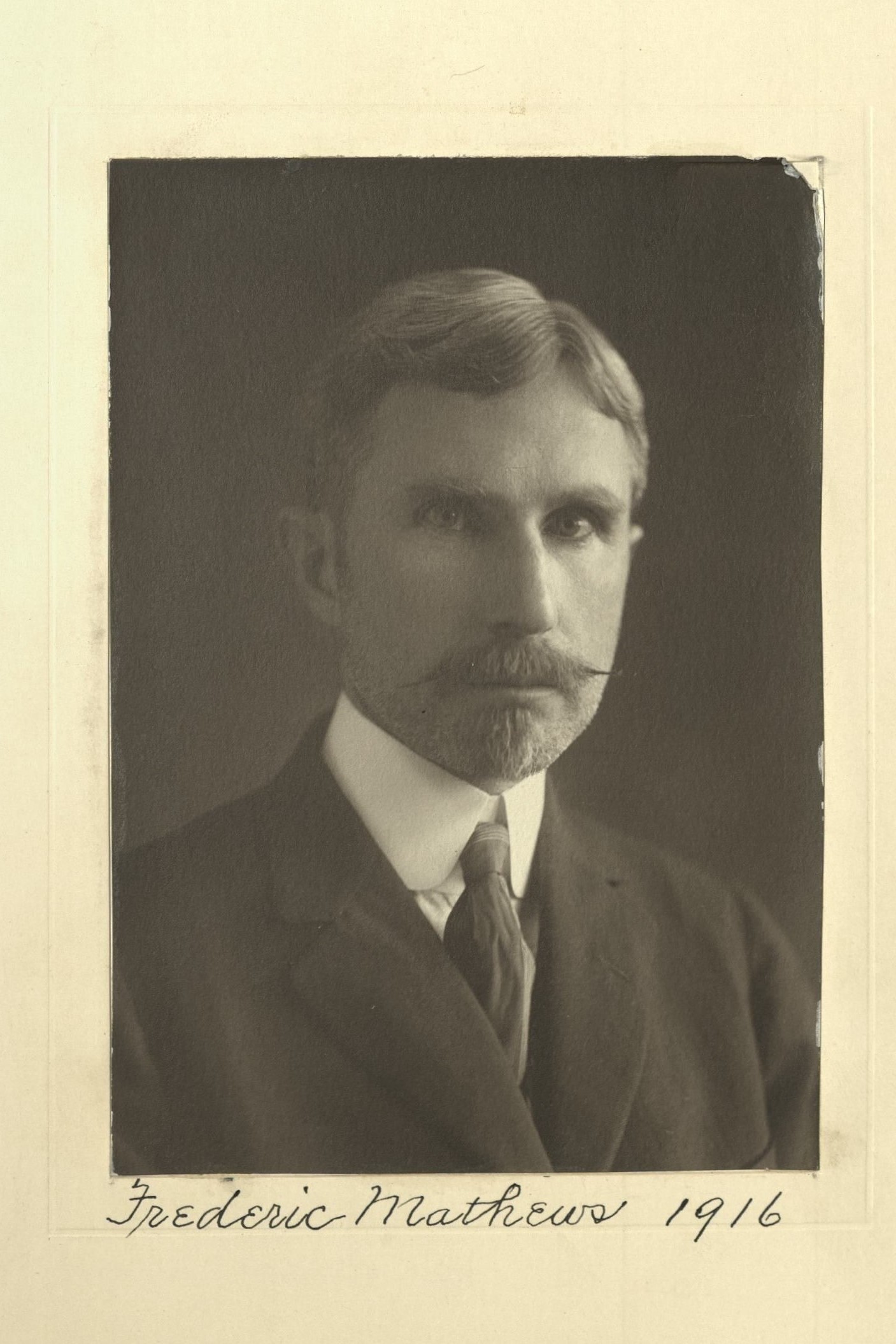Writer
Centurion, 1916–1941
Born 4 September 1869 in Philadelphia, Pennsylvania
Died 12 March 1941 in New York (Manhattan), New York
Buried Old Saint David Church Cemetery , Wayne, Pennsylvania
, Wayne, Pennsylvania
Proposed by DeWitt Parshall and Edwin H. Blashfield
Elected 4 March 1916 at age forty-six
Century Memorial
The Club saw Frederic Mathews at the rarest intervals yet he always seemed at home there. His abounding good fellowship grew with the lapse of years. The last time he turned up from Paris—via a year in South America—he wore a Van Dyck beard and clothes that suggested the spaciousness of Victorian days. His manner was correspondingly kindly and embracing. He belonged among the precious originals of the Club, those salient folk who think what they want to think and do what they want to do and thereby develop oddities of mind and appearance which are saving graces in a streamlined age. Mathews stemmed from Germantown and Yale and always seemed to have enough money to do what he wanted to do. He began by studying at the Beaux Arts in Paris and then took to wandering alone through Europe, traveling in France, Germany and Italy and around Greece with a donkey and a sketchbook, incidentally turning out a book of sonnets. When his female relatives fulminated against his frivolity—figure skating and ballroom dancing were his favorite indoor sports—he silenced them by publishing a terrifying economic work called “Taxation and the Distribution of Wealth,” which economists of the day received with respect. When the last war came his love of France held him in Paris, where he worked ardently with the Red Cross throughout the war. A decade later he set out on one of his greater expeditions, visiting a string of maharajah friends in India and becoming completely enchanted by the art of pig-sticking, which he studied and practiced on its home grounds. Horses had always been a passion with him. He coached and hunted here and abroad, notably in Ireland, and was once heard to remark that his greatest ambition was to ride at Aintree in the Grand National. Another junket took him down the east coast of Africa to Kenya and Nairobi and across Asia to China. Several pamphlets followed bearing such titles as “Gold and Armageddon” and revealing a historical perspective which made him decide in 1938 to come back to America. But, quite as a matter of course, he returned via South America, which took time, as he soon decided that he must master Spanish and Portuguese to get the best out of his trip. So, reading Camoëns and Cervantes in the original and riding with Gauchos, he finally returned to New York and the Century. Sudden lapses of memory due to his age halted him not at all; he simply pinned a label on his coat with directions for his trip to a hospital and continued his round of clubs, calls and parties. One day he fell asleep, talking to himself in Portuguese. The next day he was gone, having left his library of 800 volumes to the Century.
Geoffrey Parsons
1941 Century Memorials

